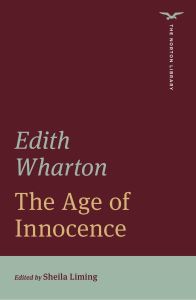
作者:Wharton, Edith/ Liming, Sheila
出版社:Norton
年份:2022
ISBN:9780393870770
書號:30264298
裝訂:平裝
定價:$361
優惠價:$343元
愛是長在我們心裡的藤蔓。
觸告訴你愛情、婚姻中的世故與真實:
「如果我們放棄苦苦去追求幸福,日子會過得更開心。」
<p style="box-sizing: border-box; padding: 0px; margin: 0px; font-variant-numeric: inherit; font-variant-east-asian: inherit; font-variant-alternates: inherit; font-variant-position: inherit; font-variant-emoji: inherit; font-stretch: inherit; font-size: 14px; line-height: 1.7; font-family: " helvetica="" neue",="" helvetica,="" arial,="" "\6587泉驛正黑",="" "wenquanyi="" zen="" hei",="" "hiragino="" sans="" gb",="" "\5137黑pro",="" "lihei="" pro",="" "heiti="" tc",="" "\5fae軟正黑體",="" "microsoft="" jhenghei="" ui",="" jhenghei",="" san-serif;="" font-optical-sizing:="" inherit;="" font-size-adjust:="" font-kerning:="" font-feature-settings:="" font-variation-settings:="" vertical-align:="" baseline;="" border:="" 0px;="" -webkit-tap-highlight-color:="" transparent;="" white-space-collapse:="" preserve;"="">Winner of the 1921 Pulitzer Prize, Edith Wharton’s The Age of Innocence depicts with masterful irony and nostalgic detail a vanished world―the glittering, elite society of “Gilded Age” New York―at the height of its power and on the brink of its demise. When Newland Archer’s comfortable future is thrown into uncertainty by the arrival of the brazenly unconventional Ellen Olenska, subtle consequences unfold as Wharton’s characters navigate conflicts of passion and propriety, demonstrating the genius of a great American novelist “at the top of her game” (Ta-Nehisi Coates).